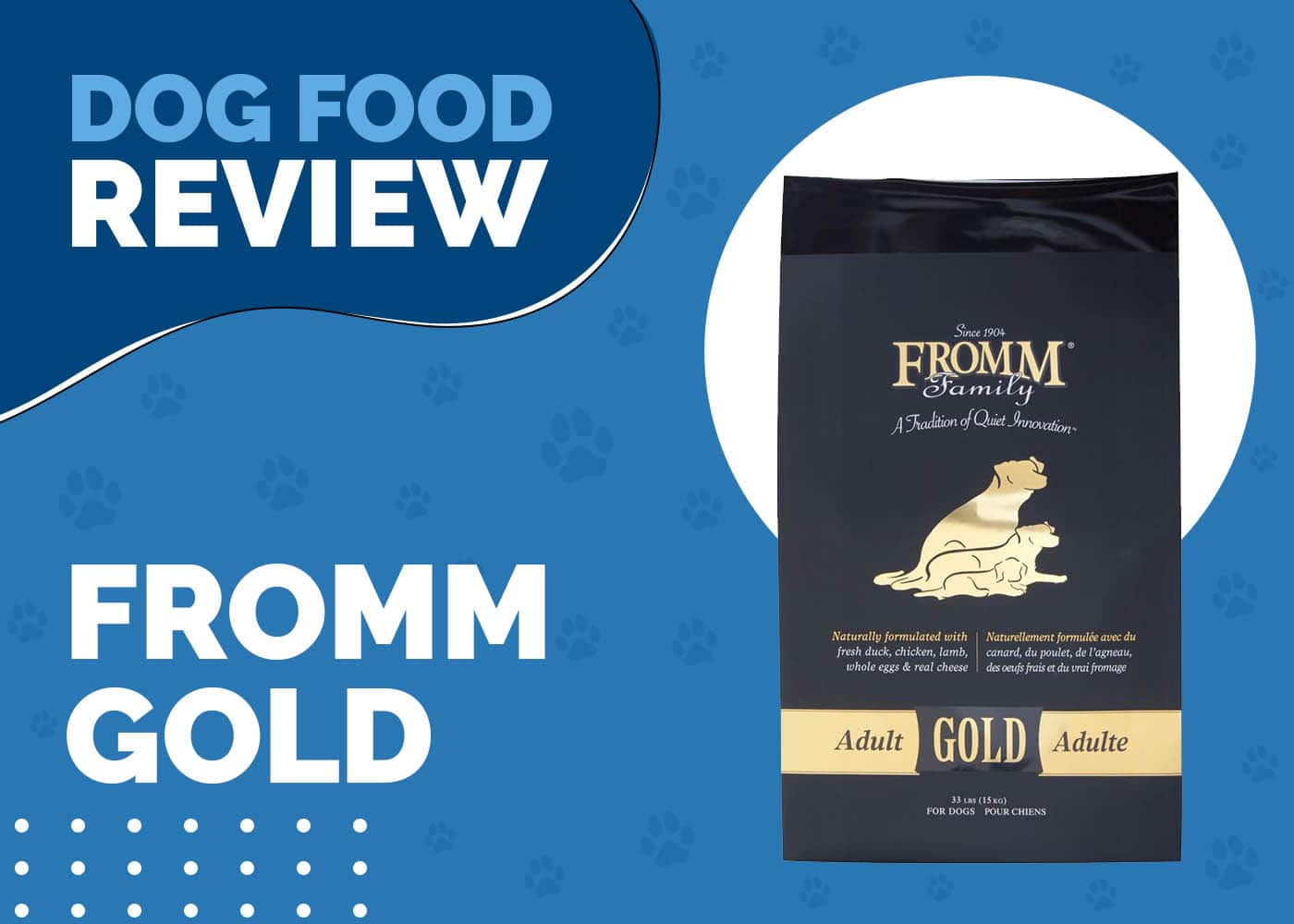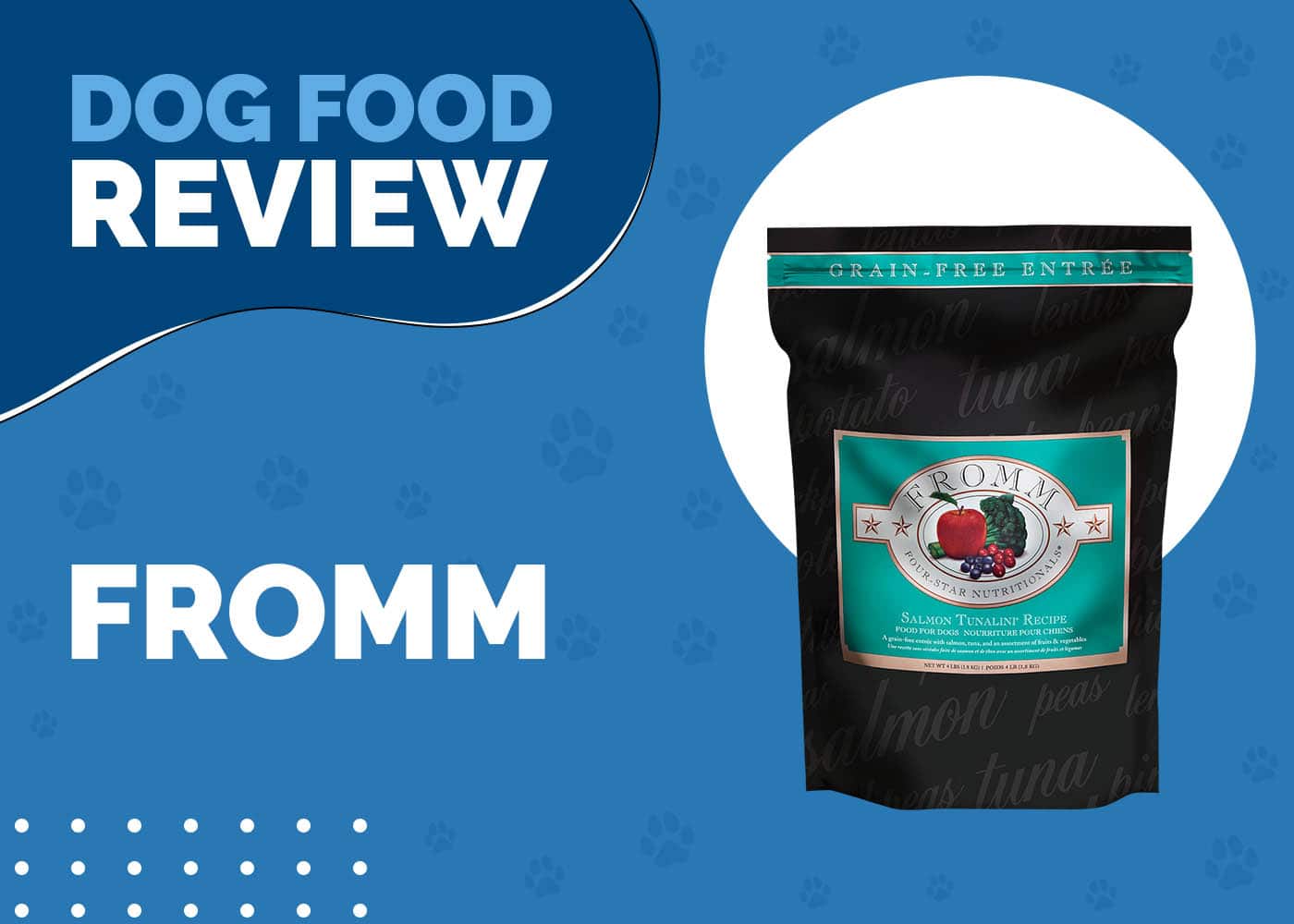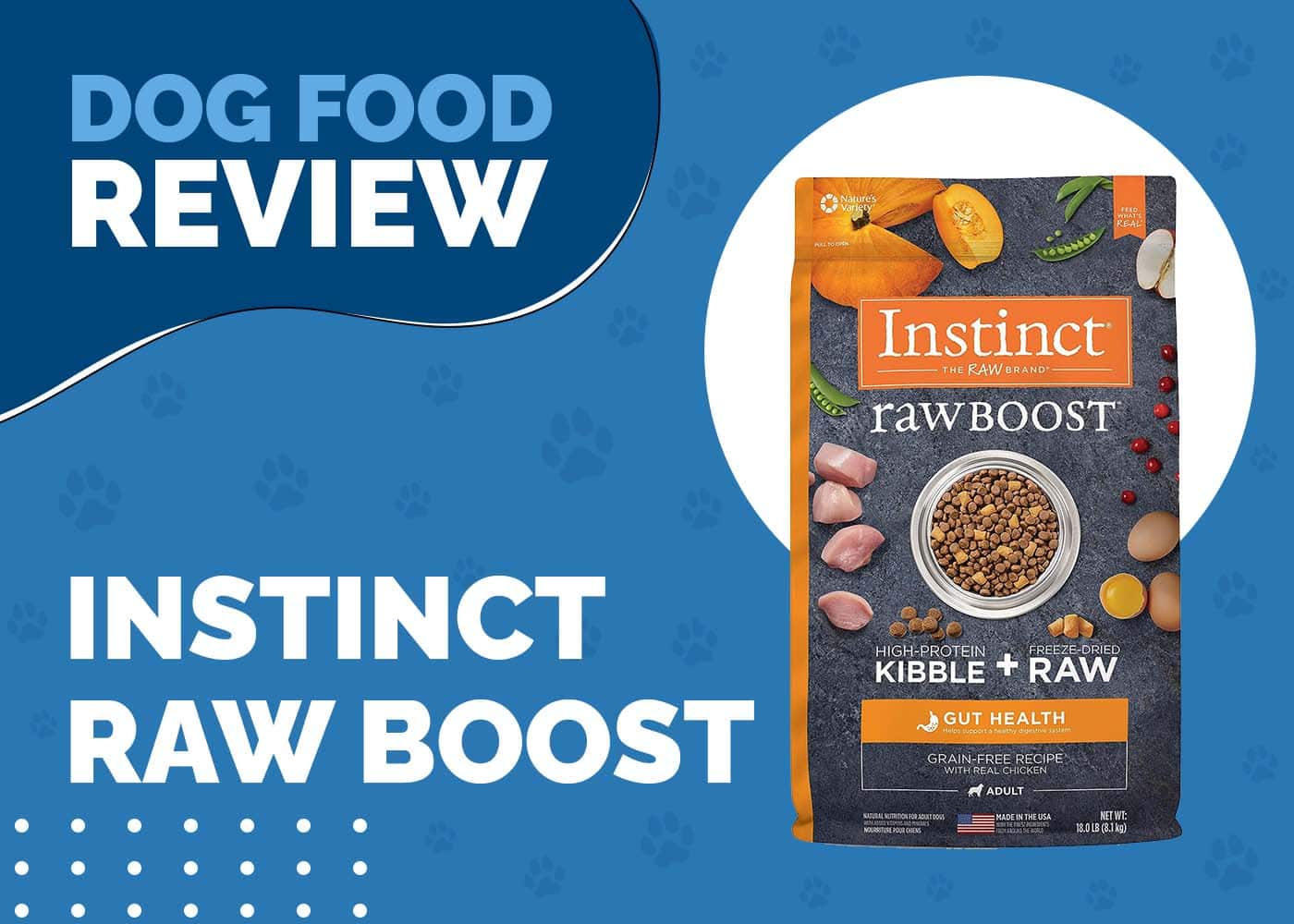Can Dogs Eat Fried Chicken? Vet Approved Facts & FAQ

Updated on
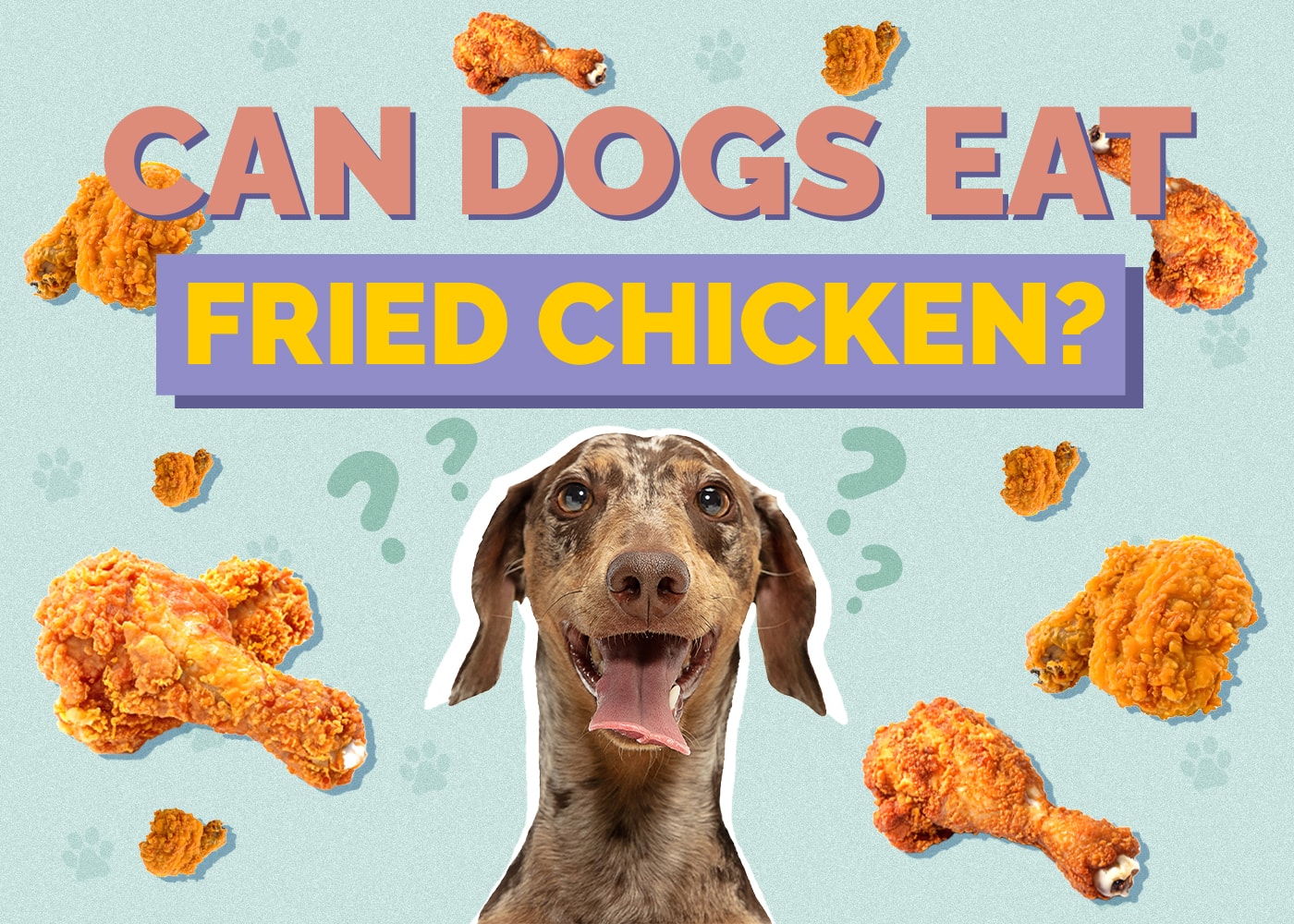
Click to Skip Ahead
Read on for more information on dogs and fried chicken, and some alternative ways to feed chicken and other meat proteins to your dog.
Why You Shouldn’t Feed Fried Chicken to Dogs
Fried chicken is not a healthy food source for dogs. It is fatty and can cause your dog to put on weight if it becomes a frequent part of their diet. The oil present in fried chicken can cause other issues, like pancreatitis and gastrointestinal problems. Most fried chicken batter includes salt and may include garlic, onion, and other ingredients that may be harmful to dogs.
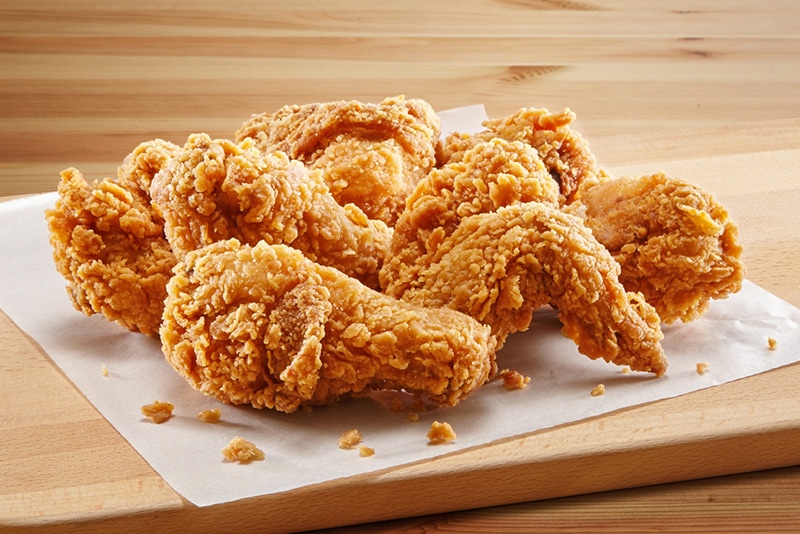
High In Fat
Too much fat in your dog’s diet means that it runs the risk of becoming overweight and even obese. Obesity is a killer, potentially leading to an increased risk of joint problems and heart disease, and it is very difficult for a dog to shed pounds once they’re overweight. While a small piece of fried chicken once in a while is unlikely to cause your dog to put on weight, extra calories and fat add up, so fried chicken can become part of a bigger problem. Fatty foods can also cause pancreatitis, which is inflammation of the pancreas. This painful condition can be debilitating and even fatal.
Toxic Ingredients
Fried chicken consists of pieces of chicken that are coated in a batter and then deep-fried. The batter consists of eggs and milk and may also include ingredients like garlic and onion. Garlic and onion are toxic to dogs, and so are some other ingredients that might be included in the batter. Even if you strip the batter off the chicken, it may have been rubbed or coated in similar ingredients, and some will have soaked into the chicken during the preparation.
Too Much Salt
In large quantities, salt can be toxic to dogs, and even in smaller amounts, it can lead to dehydration. Salt is an essential component of your dog’s diet, but too much can be dangerous. And because dogs are smaller than people, it doesn’t take as much salt as you think. Fried chicken is formulated for humans, and the volume of salt in the skin is high for a dog. Feeding this and other salty foods could be enough to make your dog ill.
Choking Hazard
Cooked chicken bones are quite brittle, and, in most cases, the bones will shatter before they pose any kind of choking threat to a dog. But this isn’t always the case. If fried chicken includes some of the larger bones, and your dog wolfs it down, it could lead to choking, or an intestinal blockage.
Boiled Chicken Is Best
Although fried chicken is bad for dogs, the chicken itself is a good source of protein, and is one of the most common ingredients in dog foods. Prepared and served properly, it is a beneficial food source for your pup. Boiling the chicken is generally considered the safest method of preparation. Cooking gets rid of any pathogens and bacteria, and because it isn’t fried, the meat remains lean and relatively low in fat and calories.
Put chicken breasts in a pan of water. Put a lid on the pan, bring it to a boil, and allow it to cook for around 12 to 15 minutes. Shred it, cool it, serve a portion of the chicken, and store the rest safely for future meals. Stick to the chicken breast because this is the leanest part of the meat, so it contains less fat, which means less risk of pancreatitis.
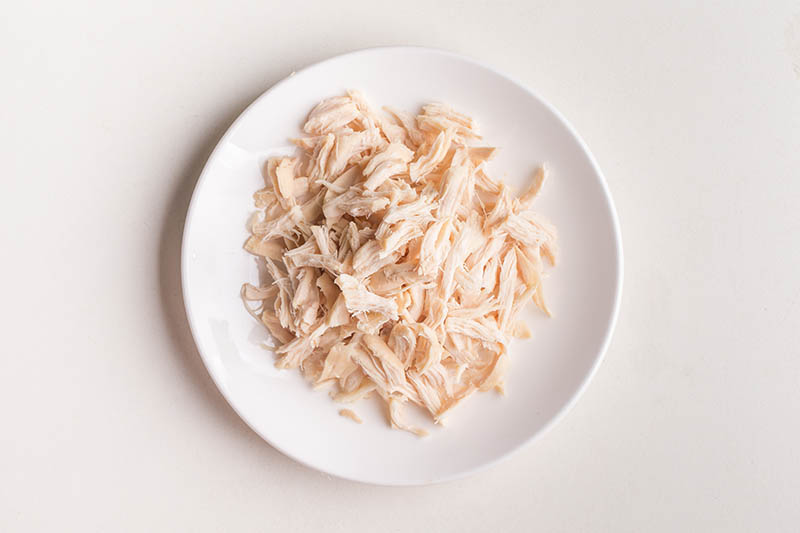
Other Meat-Based Alternatives for Dogs
Chicken is a good protein source for dogs, and it can make a great addition to your dog’s diet. However, some dogs are actually allergic to chicken, or you might just want to offer your dog a bit of variety. Here are some other meaty treats you can give your favorite canine companion.
1. Turkey
Packed with protein and a good source of vitamin B, Turkey also contains riboflavin and phosphorus. Like all meats, the turkey should be unseasoned, and avoid feeding the gravy, stuffing, and other ingredients that tend to accompany the Thanksgiving Turkey. Feed your dog the light meat (breast) rather than the dark meat (thighs), as the light meat tends to be less fatty than the dark.

2. Beef
Beef contains fatty acids and amino acids. It also contains iron, zinc, selenium, and several B vitamins. You can cook ground beef or even unseasoned steak. The steak should be grilled, to avoid the addition of extra fat, and make sure the ground beef is thoroughly cooked all the way through before feeding it to your dog.
3. Lamb
Another good source of protein, amino acids, and B12 is lamb. Although not as common in commercial dog foods as chicken and beef, it is becoming more popular. Again, ground lamb and grilled lamb are your best options when preparing the meat for canines.
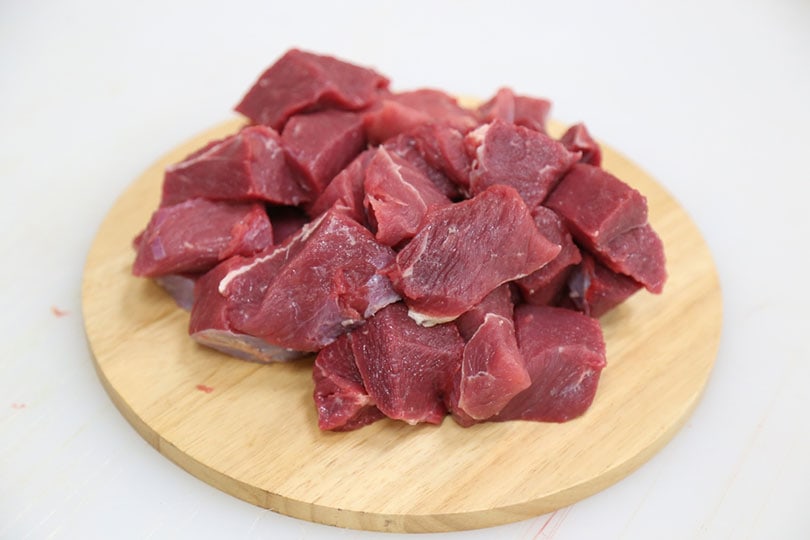
Frequently Asked Questions
Is It OK for Dogs to Eat Any Fried Food?
Generally, you should avoid feeding any fried food to dogs because of the high levels of fat that they contain. This is especially true of fatty foods that are fried because the oil used in frying further increases the fat content.
Can You Pan-Fry Chicken for Dogs?
Generally, boiled chicken is the best option for dogs. You can also bake the chicken. You can pan-fry chicken, but you should use minimal oil (or none). If you have a non-stick pan, you can fry the chicken with no oil so that it won’t take on any fat from the cooking process.
Can Dogs Eat Chicken Every Day?
As long as you are feeding a fully balanced diet, which will include other ingredients, and you meet caloric and other requirements, chicken can be fed to dogs every day. It is considered a healthy and beneficial source of protein, which is why it is found in many commercial dog foods. However, even though chicken is a lean meat and a good source of protein, you can feed too much, and it can cause your dog to put on unwanted weight, so if you’re offering chicken regularly, make sure you reduce the amount of dog food they are having.
Conclusion
Chicken is a good source of protein for dogs and is a healthy addition to their diet when fed plain. Typically, it is boiled or baked before feeding, although it can be fried in a non-stick pan without using oil.
Fried chicken is not considered safe or healthy for dogs. The batter tends to contain salt and potentially toxic ingredients like garlic and onion, while the deep-frying process also adds unhealthy levels of fat that can lead to weight gain, obesity, and potentially even pancreatitis. Your dog might be fine if it takes a small amount from your plate, but it should not be fed intentionally or regularly.
Related Reads:




